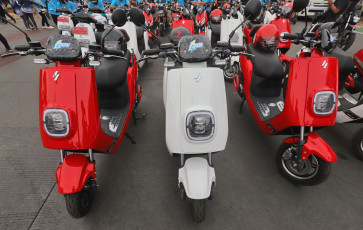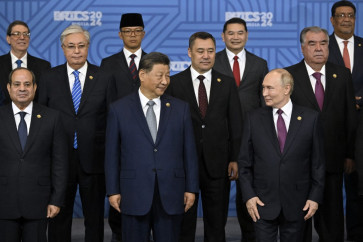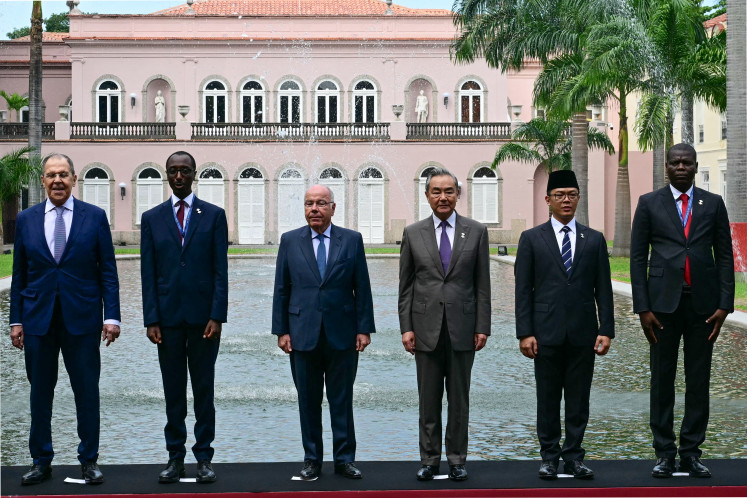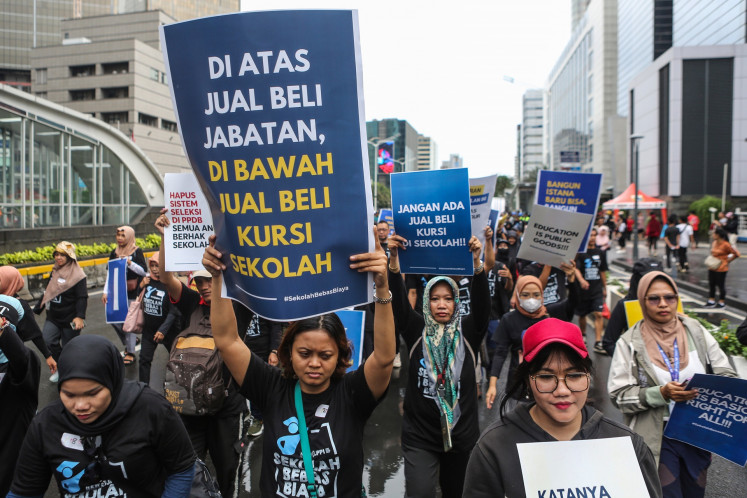'Hijrah' and humanitarian transformation
The new Islamic year commemorates the migration of Prophet Muhammad from his hometown, Mecca, to Medina
Change text size
Gift Premium Articles
to Anyone

T
he new Islamic year commemorates the migration of Prophet Muhammad from his hometown, Mecca, to Medina. At the beginning of Muharram, the first month in the Islamic calendar, Muslims often talk about the hijrah of the Prophet Muhammad in sermons and lectures and the different ways to spread information.
Linguistically, hijrah means for a person to separate himself from someone else with his body, tongue or with his heart. By Koranic definition, hijrah means a migration from evil to goodness.
This is particularly true as the Prophet Muhammad migrated from Mecca (a land of disbelief where people tortured him and his followers) to Medina (a place where people loved and respected him).
Considering the strong emphasis upon cultural processes rather than a transcendental metamorphosis, hijrah is supposed to remind Muslims of vital humanitarian transformation as a part of hablum minannas (the relationship among human beings). In this context, the very essence of the Muharram spirit pertaining to humanitarian transformation might begin with fostering contextual democracy in the country.
Democracy should be transferable to the country's cultural need, which in turn encourages respect for human rights and values. While the former places humans as the subject of social change, the latter serves to put cultural identity on a pedestal.
Morphing democracy into a contextual requisite is in accord with Islamic teachings. The Prophet Muhammad declared that those who had hurt non-Muslims were not his ummat, suggesting his high regard for human being regardless of their religions.
It suggests that he asserted that subscribing to religion is an inevitable human right and one should not be treated unequally due to his or her faith. In addition, the Prophet fathomed that adopting religion cannot be separated from cultural desire. That is why Islam holds custom, along with the Koran and Sunna of the Prophet, as one of its legal sources.
Inspired by the freedom of religion, hijrah could be a golden moment for Muslims to consolidate their core belief marked by no compulsion in religion. A democratic Muslim is one with strong faith in independently spiritual look denoting migration (hijrah) from compulsion such as forced conversion into consciousness in religion.
Equally important, the commemoration of Muharram needs to set an accurate priority of struggle for the sake of social engineering. The Prophet's decision to leave his beloved place of birth, Mecca, for Medina implies that geographical matter ' land, dwelling place and region ' is secondary by nature in a long journey of struggle.
The event is a reminder that Muslims should not be immersed in their weakness but unite their energy to develop their power instead.
Scapegoating is not the best way out. Instead of blaming poverty, Muslims would be better off becoming philanthropists and entrepreneurs with a view to opening up employment opportunity.
Rather than condemning folly, Muslims could establish affordable educational institutions and provide scholarships for poor but smart youngsters. In place of lamenting our slow progress behind other countries, Indonesian Muslims are expected to increase their productivity, creativity and innovation.
Hijrah is paradigm shift and atonement from scapegoating into empowerment and search for a common platform. It becomes more relevant following its progressivity. The progressive nature of hijrah plays a momentous role in preventing Muslims from getting trapped in past mistakes and making them more confident of their own strength.
Last but not least, the spirit of hijrah is required to develop rational life and religiosity. It has been admitted that religious conflicts, poverty and injustice are inseparable from irrational religious expression and practice. Many people are enamored by cult religious or political personalities, turning a blind eye to their mistakes.
The spirit of hijrah should pave the way for rational religiousness and interaction of life on behalf of humanity. There is no point carrying out the festivities of Muharram if Muslims do not the abandon worshiping of symbols and despotism.
The very nature of Muharram is to foster humanitarian revolution in an attempt to contextualize divine message, which is compatible with language and logic.
The writer is a lecturer in the Faculty of Cultural Sciences at Andalas University









